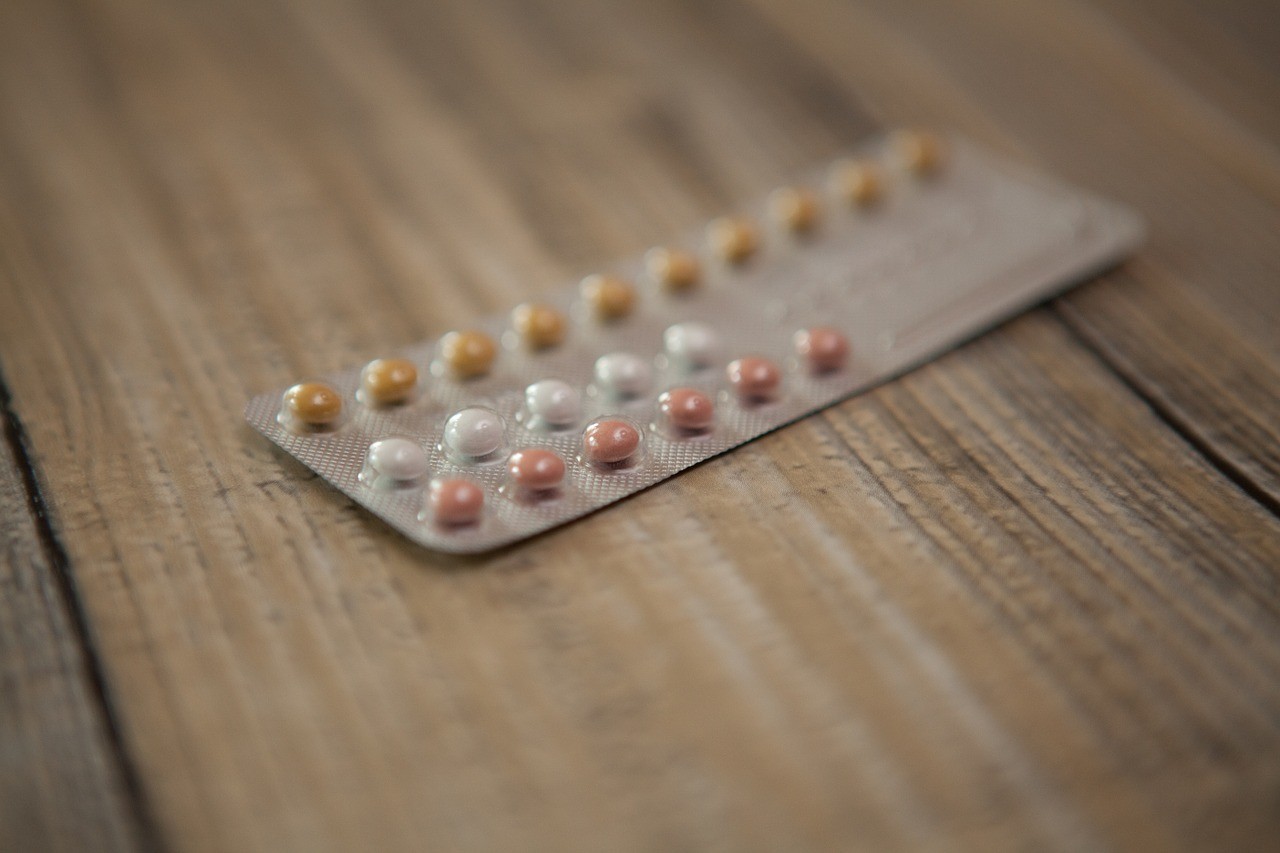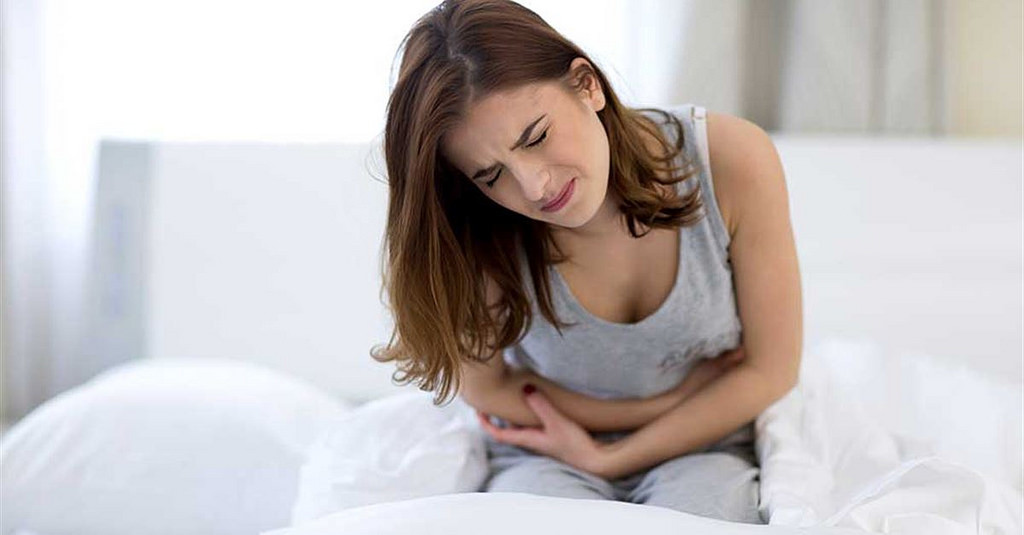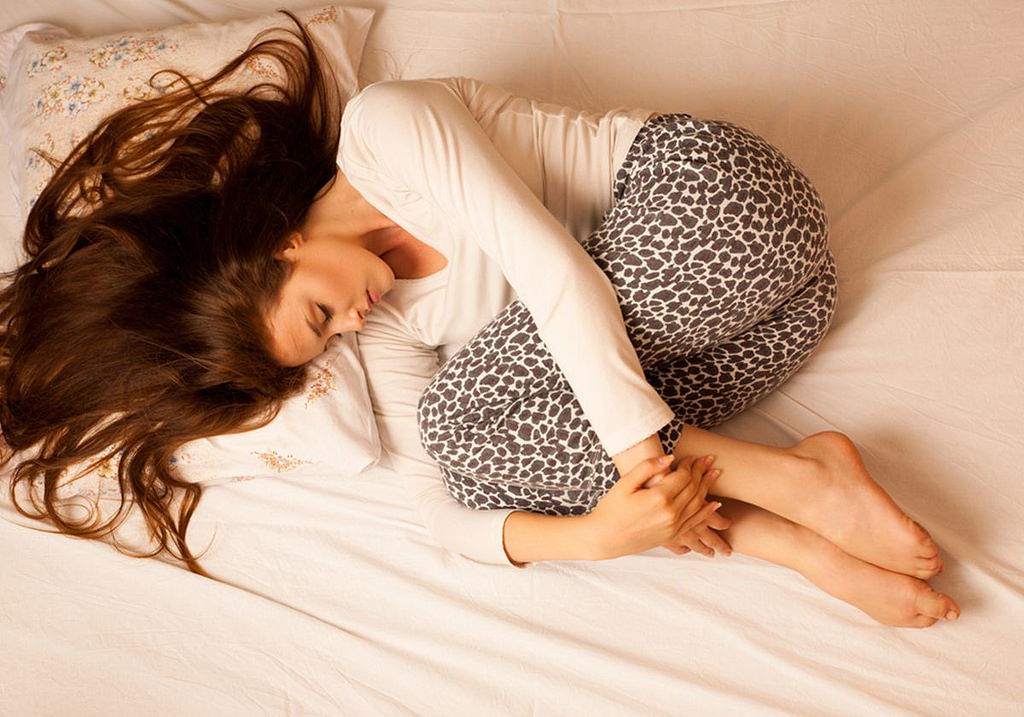Women go through a menstruation cycle about once every month during their reproductive years.
As they reach the time where they will no longer be reproductive, they enter menopause.
Menstruation and menopause often bring along fluctuating hormones, and the metabolites in the female body tend to react to these times in a woman’s life as well, leading a change in how their body metabolises essential hormones.
With these fluctuating hormones come a large list of unpleasant symptoms, physical and psychological, that can have a significant impact on the woman’s day-to-day life.
- Do you notice anger, anxiety, sadness, and unpleasant mood swings as you get closer to your period?
- Perhaps you notice abdominal pain and bloating, combined with sore breasts and acne breakouts as you hit your period?
When adequate preparation is made, and a woman takes smart steps in her own life, the impact that factors like menopause and menstruation can be greatly reduced.
This way, the symptoms that occur with the fluctuating hormones are barely noticed.
This time the woman reacts calmly, and her life can go on, even as she is going through a menstruation cycle, or entering menopause.
We are going to explore the reasons behind fluctuating hormones in this post.
We will also consider potential symptoms a woman may experience, risks associated with an imbalance in hormones in the female body, and take into account a few effective strategies that can be set in place to reduce the impact of menstruation, menopause, and other factors that lead to a fluctuation in hormones.
If you feel that your hormones are causing you significant mood swings, headaches, imbalances, and you would like to address this once and for all, please contact me now through this link, here.
What Causes Hormonal Fluctuations In The Female Body
Amongst women who are still in their reproductive age, the most common cause behind fluctuating hormones in their body can usually be linked to the menstruation cycles that the female body undergoes once a month.
When we look at older women, menopause is most commonly associated with hormonal changes in the body.
Even though these are common, there are other possible causes for hormonal fluctuations within the female body.
Understanding all of the factors that can lead to a change in hormones ensures a woman can be better equipped to understand why her hormones are out of balance, and what needs to be done in order to rectify the issue at hand.
Other Factors That Affect Hormones In Women
Apart from menopause and, of course, menstruation, other factors that can also have an impact on the body’s ability to produce and secrete certain hormones include1:

- Thyroid issues, including both hyperthyroidism and hypothyroidism. Hyperthyroidism is when there are too many Thyroid hormones (T3 and T4) in the body2, while Hypothyroidism is the opposite. Thyroid hormones have a role to play on metabolism, as well as other functions in the body.
- Living a very stressful life
- Thyroid nodules that are hyperfunctioning, which refers to nodules that grow on the Thyroid gland, most often benign, leading to an increase in the production of thyroid hormones.
- Congenital adrenal hyperplasia, a series of conditions that means there is a lack of a certain enzyme that is involved in the production of hormones by the adrenal gland.
This is a genetic disorder that is inherited.
- Diabetes
- Hypogonadism, a condition where the ovaries in the female body fail to produce an adequate amount of sex hormones.
- Cushing syndrome, where a benign tumour develops within the pituitary gland, leading to an excessive release of Adrenocorticotropic hormone, which causes the Adrenal glands to produce too much cortisol.
- Thyroiditis, a condition where inflammation affects the Thyroid gland.
This can lead to overproduction or sometimes an underproduction of essential Thyroid hormones.
Women who are undergoing hormone therapy may also experience fluctuations in their hormones.
The Effect Of Medications On Female Hormones
There are certain types of medication that have also been shown to have an adverse impact on the hormonal balance in the female body.
- In one study3, scientists found that pain medication can alter levels of bioactive sex hormones in the female body.
The study found that women who took pain medication that included Fentanyl, Gabapentin, and Tramadol experienced significant reductions in the bioactive estrogen levels in their bodies.
- Women who are taking oral contraceptives are also at risk of experiencing an imbalance in their hormones4.
It has been found that women tend to have lower levels of Thyroid hormones in their bodies, as well as a reduced level of testosterone when they are on „the pill”.
Since synthetic hormones are added to the body, the body’s natural ability to produce these hormones are also adversely affected.

In addition to all of these mentioned causes for a fluctuation in hormones, it is important not to overlook the impact that pregnancy can also have on a woman’s hormones.
The female body goes through many changes while pregnant, and some of these changes are the result of fluctuating hormones.
Hormone Fluctuations During Menstruation
As a woman reaches her period, certain hormonal fluctuations tend to occur during the cycle. There are four primary hormones that are affected by a menstruation cycle, including:
- Follicle-stimulating hormone – a hormone that is responsible for readying follicles for the ovulation cycle.
- Progesterone – When a follicle ruptures, progesterone is released.
- Estrogen – one of the main sex hormones in the female body, leading to an endometrium, or a uterine lining build-up, during menstruation.
- Luteinizing hormone – the hormone that is responsible for the development of the follicle, or egg, also causing the egg to be released from a woman’s ovary.
Risks And Symptoms Associated With Fluctuating Hormones
Women need to understand what specific symptoms they may experience when their hormones are fluctuating and not in balance.
This, in turn, equips a woman with the knowledge to understand when she might be suffering from an imbalance in her hormones, and helps her to take appropriate action in order to restore the balance.
In most women, the most obvious symptoms that may become present, especially during times of menstruation, as well as when the woman transits into a phase of perimenopause, would include a range of psychological issues.
Examples of such symptoms may include:
- unexpected weight gain
- depression,
- anxiety,
- mood swings,
- anger, and
- feelings of sadness.
In one study5, scientists explain that hormones, along with certain neurotransmitters, which include (but not limited to):
- serotonin,
- norepinephrine and
- dopamine
- etc.
Are known to play a large role on the specific receptor areas, as well as the pathways in the brain that are associated with the regulation of mood.
Hormones also have a direct impact on the hypothalamic-pituitary-gonadal axis.
This term is often used to reference the connection that three glands in the endocrine system shares.
These glands include the Gonadal glands, the pituitary gland, and the hypothalamus.
Psychological Impact Of Fluctuating Hormones
This is, in turn, one of the reasons why women tend to become very emotional and experience many mood “swings” during times when their bodies are experiencing a fluctuation of hormones.
In addition to these mood swings, women may also find that other types of psychological symptoms develop during these times as well.
Depression is found to be rather common amongst women who do not achieved a healthy balance of essential hormones in their bodies.
Apart from depression, women may also develop:
- anxiety,
- become more sensitive to comments made by others,
- self-hatred,
- anger, and,
- in some cases, melancholia-related symptoms may develop as well.
Physical Effects Of Fluctuating Hormones
There are physical symptoms that often tend to occur with fluctuating hormones as well, but this often depends on the current situation.
For example, prior to undergoing menstruation, a lot of women will experience what is often referred to as pre-menstrual syndrome.
During this time, they may experience the mood swings, depression, anxiety, and other psychological symptoms we mentioned earlier.
Additionally, they may also develop:
- Cramps
- Breast tenderness
- Diarrhoea

While it is definitely useful to look at these symptoms, women are advised to realise that people experience the impact of hormones that are fluctuating in their own ways.
Some women are able to get through their day without any problems arising, even while they are going through their menstrual cycle.
For others, however, multiple symptoms such as abdominal pain, bloating, acne breakouts, anxiety, depression, and mood swings may develop, and it might feel like their lives have come to a halt for the time being.
Dysmenorrhea: is also a possible factor that women may experience, leading to menstrual cramps. The condition is caused by a chemical known as prostaglandin. Dysmenorrhea is when the uterus experiences more intense contractions, leading to:
- Abdominal pains, which can be severe at times.
- There may also be a sensation of pressure within the woman’s abdominal region.
- Pain may also develop in their inner thighs, lower back, and their hips.
Methods For Reducing The Impact Of Fluctuating Hormones
There are various methods that can be used to assist in maintaining a better balance of hormones in the female body, essentially reducing the effects that PMS and menopause have on hormones.
The key to a reduction in these symptoms lies in a customised lifestyle and customisation is the real keyword here.
We are all different and react differently to foods and lifestyle changes.
Women who feel that they are significantly affected by these phases in their life will benefit from focused changes in their lifestyle.
Even slight changes may yield impressive results.
But, customised changes are best because they go in a straight line and it will help to improve the woman’s general functionality, productivity, and mood during times where she is going through a menstruation cycle, or as she enters perimenopause.
Thus, let’s take a look at two of the most important areas related to a woman’s well-being that should be focused on in order to reduce the severity of the symptoms that may develop with fluctuating hormones.
The Effects Of Diet On Female Hormonal Balance
Women often do not realise just how much of an impact on what they eat has on their body’s hormone balance.
A diet that is high in healthier food choices such as vegetables, fruits, and nuts, are often found to promote the general well-being of the female body, while also ensuring an improvement in the hormonal balance.
These are all examples of foods that are known to improve the balance of hormones in the female body:
- Cruciferous vegetables
- Edamame
- Natto
- Tofu
- Flaxseeds
- Miso
Some foods can also aggravate hormonal fluctuations and lead to more severe symptoms when such an imbalance occurs.

Physical Activity And Female Hormones
Apart from a customised nutrition diet programme, women should also ensure that they are physically active if they wish to maintain a healthier hormonal balance in their bodies.
Physical activity can assist in providing a better balance in hormones.
At the same time, overdoing it in the gym or even at home in terms of physical activity can lead to adverse effects; thus a balanced exercise routine is needed.
One study6 explains how more intensive exercise routines can have adverse effects on hormones in the female body.
Hormones affected in the study included testosterone, SHBG, and estradiol.
The Role Of Professional Coaching In Reducing The Risk Of A Hormonal Imbalance
While it is beneficial to adopt a healthier diet, along with an appropriate exercise regimen, it is also important to consider that every woman has a unique body.
For this reason, following a generic diet and exercise programme will not be or take each woman’s best interests into account.
To provide an example, we should look at a study7 that compared the results of a weight loss regimen to a control group.
The study included 27 female participants who were provided with a weight loss programme, along with 23 female participants who were considered the control group.
An energy deficit diet was used by the 27 female participants, with a reduction in their carbohydrate intake, along with an increase in aerobic exercises.
By the end of the study, positive results were noted in terms of body weight and fat mass.
On the other hand, the study group also experience changes in their hormones.
Testosterone, triiodothyronine, and estradiol levels were all decreased at the end of the study amongst the female participants who followed the provided weight loss plan.
After a period of recovery, most hormones did come back into balance, except for testosterone and triiodothyronine, both of which are important hormones.
Even though testosterone is usually associated with men, the female body also relies on this hormone for multiple functions, including:
- Fat distribution
- Metabolic activity
- Muscle development
- Energy regulation
- Psychological health (women with low testosterone can experience depression and mood disturbances)
Conclusion
Fluctuating hormones in the female body often brought on by a menstruation cycle, as well as by menopause in older women, can lead to headaches, mood swings, and other complications.
Understanding why these fluctuations occur and how the effects they have can be counteracted is useful for women who find that factors in their life that lead to hormonal changes have a significant impact on their overall functioning.
Through an appropriate dieting programme designed to assist in balancing hormones, along with a physically active lifestyle, fluctuations in hormones can be limited.
Symptoms associated with menstruation and menopause can also be reduced by a significant level.
- Keen to regain your fitness, tone up, lose weight effortlessly and naturally and transform your body?
Contact Jazz Alessi now and Request a FREE CONSULTATION !
References
1 C. O’Keefe Osborn. Everything You Should Know About Hormonal Imbalance. Healthline. 18 Dec 2017.
2 Overactive thyroid (hyperthyroidism). NHS. 22 Sept 2016. https://www.nhs.uk/conditions/overactive-thyroid-hyperthyroidism/
3 J.A. Ray, M.M. Kushnir, A.W. Meikle, J.E. Sindt, F.G. Strathmann. An exploratory study Evaluating the impact of opioid and non-opioid pain medication on serum/plasma free testosterone and free estradiol concentrations. Wiley Online Library. 9 Feb 2017. https://onlinelibrary.wiley.com/doi/full/10.1002/dta.2174
4How The Pill Can Seriously Affect A Woman’s Health. https://hormonesbalance.com/articles/pill-can-seriously-affect-womans-health/
5 C.N. Soares, B. Zitek. Reproductive hormone sensitivity and risk for depression across the female life cycle: A continuum of vulnerability? Journal of Psychiatry & Neuroscience. Jul 2008. https://www.ncbi.nlm.nih.gov/pmc/articles/PMC2440795/
6M.F. Chan, M. Dowsett, E. Folkerd, S. Bingham, N. Wareham, R. Luben, A. Welch, K.T. Khaw. Usual Physical Activity and Endogenous Sex Hormones in Postmenopausal Women: The European Prospective Investigation into Cancer – Norfolk Population Study. American Association for Cancer Research. 19 Feb 2017. http://cebp.aacrjournals.org/content/cebp/16/5/900.full.pdf
7J.J. Hulmi, V. Isola, M. Suonpaa, N.J. Jarviven, M. Kokkonen, A. Wennerstrom, K. Nyam, M. Perola, J.P. Ahtiainen, K. Hakkinen. The Effects of Intensive Weight Reduction on Body Composition and Serum Hormones in Female Fitness Competitors. Frontiers in Physiology. 10 Jan 2017. https://www.ncbi.nlm.nih.gov/pmc/articles/PMC5222856/




